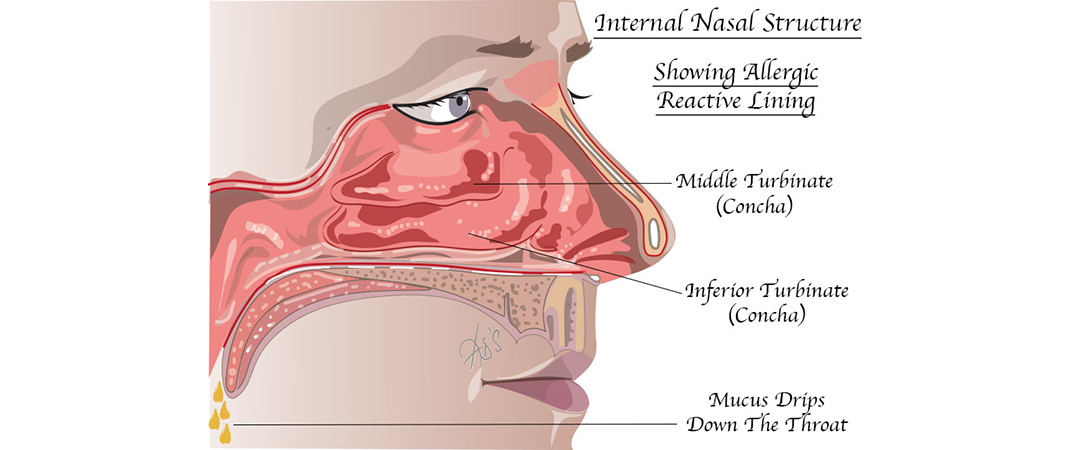Allergic Rhinitis is an inflammation of the nasal lining caused by allergens such as, pollen, house dust mite, general dust, mould, animals and certain foods
What Is Allergic Rhinitis?
Allergic Rhinitis is an inflammation of the nasal lining caused by allergens such as, pollen, house dust mite, general dust, mould, animals and certain foods. Hayfever forms part of the spectrum. It is a common condition, affecting 1 in 5 people in the UK.
Signs & Symptoms
Typically the symptoms mimic a common cold and include but are not limited to:
- Blocked and or a runny nose
- Sneezing
- Itching
- Catarrh dripping in the throat (post nasal drip)
- These symptoms usually are triggered by allergen exposure and last for several hours
- Symptoms often affect sleep and routine work and schooling in children
These symptoms may be all the year round or may be seasonal.
How to Diagnose
A diagnosis of Allergic Rhinitis is based on the following:
- Symptoms and any possible triggers you may have noticed
- Clinical examinations
- Allergy testing
Preventing and Treating Allergic Rhinitis
It is difficult to treat all symptoms of the disease and a graduated approach is used. The following are some treatment options:
- Allergen avoidance, helps to reduce the symptoms though some allergens can not be completely avoided e.g. dust
- If the symptoms are mild, over-the-counter medications such as non-sedating antihistamines and steroid based nasal sprays will help with symptoms
- Regular rinsing of the nasal passages with salt water solution to keep the nose free of irritants
- Prescription sprays and antihistamines
- Surgery to reduce the bulk of part of the nasal lining
- Immunotherapy, administered by an allergist
Special Considerations
In some cases, Allergic Rhinitis can increase the risk of complications. These include:
- Nasal Polyps – increased risk of developing nasal polyps. These are swollen sacs of nasal lining with some fluid and are not cancerous
- Sinusitis – an infection of the sinuses to a variable degree
- Middle Ear Infections – infection of part of the ear located directly behind the eardrum
These problems can often be treated with medication, although surgery is sometimes needed in severe or long-term cases.

